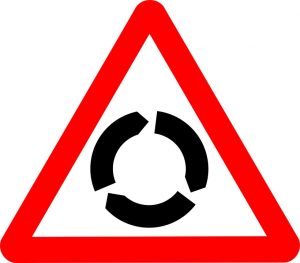What is Anxiety?
Anxiety is a normal and often healthy emotion. However, when a person feels disproportionate levels of anxiety, it can become a disorder. Anxiety disorders are the most common mental illness in the United Kingdom, affecting 8 million adults in any given year.
There are many different types of anxiety disorders, including:
- Generalized anxiety disorder (GAD): This is characterised by excessive, uncontrollable worry about a variety of topics.
- Panic disorder: This is characterised by sudden, intense episodes of fear or panic that are accompanied by physical symptoms such as chest pain, shortness of breath, and dizziness.
- Social anxiety disorder: This is characterised by a fear of social situations that may lead to embarrassment or humiliation.
- Specific phobias: This is a fear of a specific object or situation, such as heights, spiders, or public speaking.
Anxiety Symptoms
The symptoms of anxiety can vary depending on the type of disorder, but some common symptoms include:
- Worry: This is the main symptom of anxiety. It can be about anything, but it is often about things that are out of your control.
- Physical symptoms: These can include chest pain, shortness of breath, dizziness, nausea, and sweating.
- Avoidance: People with anxiety disorders often avoid situations that they fear. This can lead to social isolation and decreased quality of life.
- Changes in behaviour: People with anxiety disorders may also experience changes in behaviour, such as fidgeting, pacing, or having trouble concentrating.
Causes of Anxiety
The exact causes of anxiety disorders are not fully understood, but there are a number of factors that may contribute, including:
- Genetics: Anxiety disorders tend to run in families, suggesting that there may be a genetic component.
- Brain chemistry: People with anxiety disorders may have imbalances in certain brain chemicals, such as serotonin and norepinephrine.
- Life experiences: Traumatic or stressful life experiences can increase the risk of developing an anxiety disorder.
Treatment for Anxiety
There are a number of effective treatments for anxiety disorders, including:
- Cognitive-behavioral therapy (CBT): This type of therapy helps people to change the way they think about and react to anxiety-provoking situations.
- Exposure therapy: This type of therapy involves gradually exposing people to the things that they fear in a safe and controlled environment.
- Medication: There are a number of medications that can be effective in treating anxiety disorders, such as selective serotonin reuptake inhibitors (SSRIs) and benzodiazepines.
- Hypnotherapy: Hypnotherapy is a type of therapy that uses relaxation and suggestion to help people change their thoughts, behaviours, and emotions. It can be an effective treatment for anxiety disorders, especially when used in combination with other treatments.
Hypnotherapy can help with anxiety in a number of ways. It can help people to:
- Relax and reduce their anxiety levels.
- Change their negative thoughts and beliefs about anxiety.
- Learn coping skills to manage their anxiety.
- Access their subconscious mind to address the root cause of their anxiety.
Hypnotherapy can be a good option for anxiety, and a helpful treatment for people who are struggling with this condition. If you are considering hypnotherapy for anxiety, it is important to find a qualified hypnotherapist who has experience working with anxiety disorders.
Living with Anxiety
Anxiety disorders can be a very challenging condition to live with, but there are a number of things that people can do to manage their symptoms and improve their quality of life. These include:
- Getting regular exercise: Exercise can help to reduce stress and improve mood, both of which can help to manage anxiety symptoms.
- Getting enough sleep: When you’re well-rested, you’re better able to cope with stress and anxiety.
- Practicing relaxation techniques: There are a number of relaxation techniques that can help to reduce anxiety, such as deep breathing, meditation, and yoga.
- Support groups: Talking to others who understand what you’re going through can be very helpful. There are many support groups available for people with anxiety disorders.
Conclusion
Anxiety disorders are a common and serious mental illness, but they are treatable. If you are struggling with anxiety, please reach out for help. There are many resources available to you.




